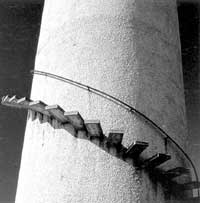 The Beed's written plenty about the Nepal and India trade treaty, and would like to linger awhile on the future of the trade relationship, now that the troublesome agreement has been renewed. The renewal of the treaty was, cynical as it may sound, at the behest of geo-politics rather than socio-economics. More to the point for our common future, if we are willing to share one, will be analysing the Indian federal budget recently tabled in parliament, and asking what the oh-so-subtle unveiling of Reforms II in India means for us.
The Beed's written plenty about the Nepal and India trade treaty, and would like to linger awhile on the future of the trade relationship, now that the troublesome agreement has been renewed. The renewal of the treaty was, cynical as it may sound, at the behest of geo-politics rather than socio-economics. More to the point for our common future, if we are willing to share one, will be analysing the Indian federal budget recently tabled in parliament, and asking what the oh-so-subtle unveiling of Reforms II in India means for us. But on that subject, your existential oracle of all things economic is willing to bet the streets of Chandni Chowk and Ason came alive in whatever draughty South Block room the negotiations were taking place in. And that both parties walked away smugly satisfied with their haggling skills, with the question of value addition, the main feature of the new, dubiously improved treaty, resolved through that age-old tool of economic policy-making.
The adventures of the famous five-vanaspati ghiu, copper twine, acrylic yarn, zinc oxide and steel pipes-have been cut sadly short and the option of calling foul using the export surge catch-all phrase has been institutionalised. The wording of the treaty was agreed upon, but have the modalities been set out to define \'export surge', and is there a quantitative mechanism to cap exports? Will the licenses issued to producers come with quantitative restrictions? And if that is done, who will be responsible for the licensing procedure and for enforcing the restrictions? Is there a chance that the creative import documentation so commonly used to undervalue quantity and rates will be matched by similarly creative export documentation? Without someone to enforce all these restrictions, the treaty is worth less than the paper it's written on. And given the shenanigans of the border customs police already in evidence, it is hard to imagine how they will deal with the various provisions in place or if they will make more than a rudimentary effort at enforcement.
The little coverage in the Indian press on the treaty comes as a surprise-where is all the news about how India's protected domestic industries are reacting to the treaty? It would be nice-and forewarned-to know whether they are happy, or still lobbying their government to have their way in the implementation phase. On the Indian budget, going by what the Finance Minister says, it doesn't seem to have anything that would especially affect Nepal. The unstated intention to continue with reforms by rolling back subsidies and tax sops to middle income taxpayers will have to be first agreed upon by the political parties in the ruling alliance. The cut in customs duty indicates that the right moves are being made to comply with the WTO on tariff rationalisation, but from the Nepali perspective, the lowering of customs duties in India means fewer opportunities of informal trade. The impact of higher LPG and other petroleum product prices will, of course go through a 1.6 spiral on reaching Nepal.
This is why the renewal of the trade treaty should also be viewed from the perspective of the changes that the Indian economy is adopting. A fair railway budget and now a rational federal budget are the backdrop against which import-export as well as monetary policy will follow. What the altered treaty does is bring a semblance of the notion that Nepal and India might now be trading partners, a definite step up from the impression the earlier treaty gave of one partner given blanket benefits. For Nepal, this is a chance to revisit the critical issue of core competencies, and what industries and businesses these can sustain. The Beed challenges the powers that be to do so.
Readers can post their views at [email protected]



